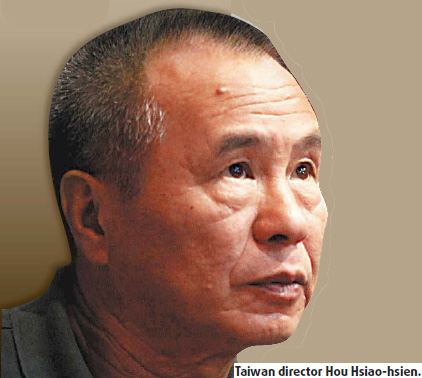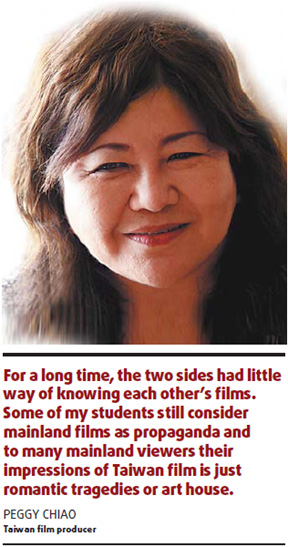Opportunity Knocks
By Liu Wei (China Daily)
2009-07-01 14:01
 |
Large Medium Small |

If Ang Lee were making The Wedding Banquet now, he would have no problem getting the actress for the female lead. The role, a young woman from Shanghai, was written with Joan Chen, a Shanghai native and a prominent actress of the mainland, in mind. But since mainland talent was not allowed in a Taiwan-financed production back in the early 1990s, Lee had to go for a Taiwan actress instead.
That kind of meddling by politics in art may never happen again. A mainland-Taiwan co-produced film will likely be allowed to have a mainland cast of up to one-third by the end of July, compared with the quota of just two mainland actors allowed in such a production now, a Taiwan official says.
Taiwan's "Mainland Affairs Council" has approved the proposal, says Frank J.K.Chen, director of the department of motion pictures affairs, Taiwan's "Information Office".
"We are awaiting a response from authorities, which is expected at the end of July," Chen says in an exclusive interview with China Daily.

The small step may mean a giant leap for cross-Straits cooperation in the film business.
Although they share Chinese culture, there has been little cooperation between the two sides in terms of film production since 1949.
However, warmer political relations, the remarkable growth of the mainland film market and the declining Taiwan film industry has created a golden opportunity for cross-Straits film co-production.
The mainland and Taiwan launched daily direct passenger flights, shipping routes and postal services on Dec 15, 2008, after the island's leader, Ma Ying-jeou, took office in May, 2008.
"I took the morning flight from Taiwan last Wednesday and arrived in Beijing after three hours. I have been to the mainland more than 50 times, and this is the quickest trip," says Taiwan director Li Hsing, 79, at the opening ceremony of the inaugural Cross-Strait Film Exhibition, last Friday, in Beijing.
Li, long devoted to cultural exchanges between the two sides' filmmakers, led a delegation of about 20 Taiwan officials, filmmakers and actors, to attend the event.
The week-long exhibition, which runs until Friday, will screen six Taiwan films, mostly recent works by young talents, in Beijing and Tianjin, following seven mainland film screenings in Taiwan earlier in June.
At the same time, Fan Liqing, spokeswoman of the Taiwan Affairs Office of the State Council, told a press conference on June 24 that: "We would like to work together with Taiwan filmmakers to strengthen exchanges and enlarge cooperation."
"The timing for both sides' filmmakers to join hands is very good now," says Chen Shan, professor of Beijing Film Academy. "The realization of the three direct links and warmer political climate undoubtedly makes communications more convenient."
The increasingly sophisticated and vast mainland market is another factor.
Taiwan released only 36 films last year, grossing $9.3 million at the box office, while 382 films from overseas shown locally generated revenue of $67 million, according to Reuters.
In the same year, the mainland created 406 feature films. The box office revenue increased 30 percent to 4.34 billion yuan ($638 million) over 2007. There has been continuous annual growth of 25 percent since 2002.
Peggy Chiao, an established Taiwan film producer and scholar, does not hide her concerns about the island's film business.
"The revenue for local films has for many years remained at 1 percent to 2 percent of the total gross box office," she says. "The prevalence of Hollywood films in an open market, as well as the art house films that turn off viewers, have both played a role in the decline of our film business."
Taiwan used to produce about 200 films annually in its heyday, but now the number has dramatically decreased, confirms senior director Hou Hsiao-hsien.